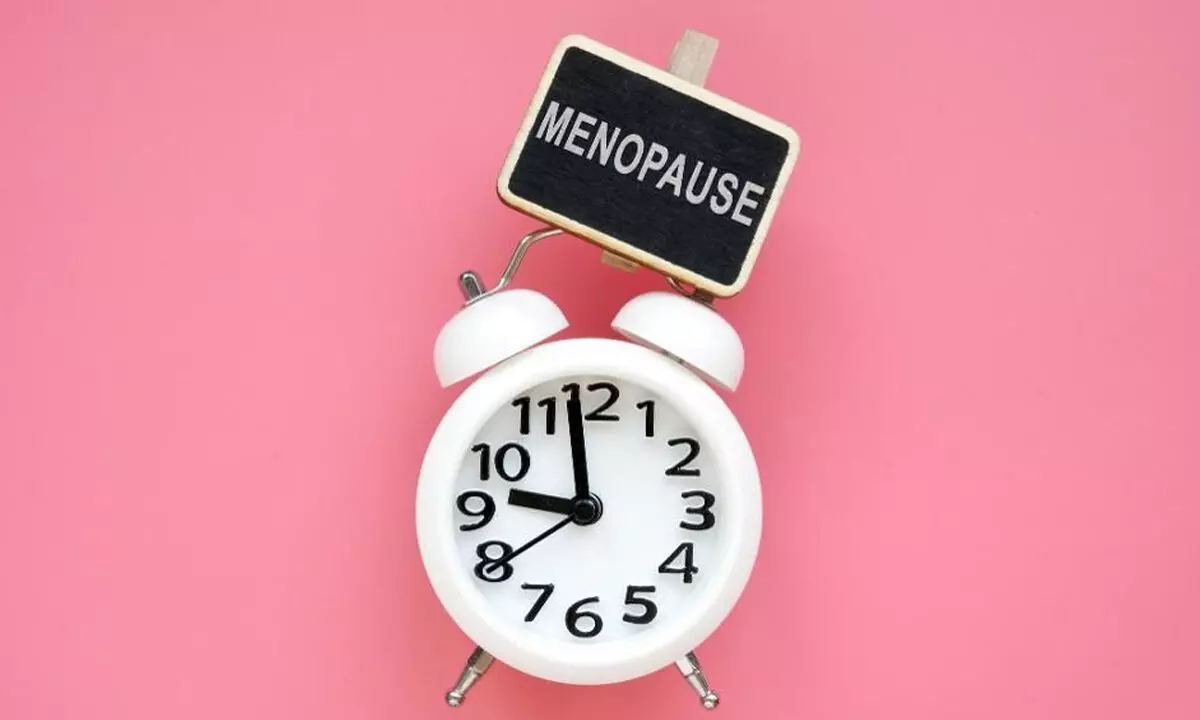Navigating Menopausal Changes: A Guide to Managing Urinary and Sexual Health

Menopause is a natural biological process that occurs at the conclusion of a woman’s reproductive years.
Menopause is a natural biological process that occurs at the conclusion of a woman’s reproductive years. This transitional period, which usually occurs in the late 40s or early 50s, is characterised by considerable hormonal changes that can have an impact on several areas of a woman’s health. One of the most important aspects that is sometimes disregarded is the impact on urinary and sexual health. Addressing these issues is critical to sustaining general well-being during this transitional period.
Understanding Menopausal Transitions
l Hormonal changes and their effects on the urinary system - Menopause is characterised mostly by a decrease in oestrogen levels. This hormonal shift can have an impact on the urinary system, causing symptoms like urine incontinence, increased frequency of urinating, and alterations in bladder function.
l Changes in sexual health as a result of hormone changes - Oestrogen is essential for maintaining vaginal health and lubrication. Women may report vaginal dryness, pain during intercourse, and a decrease in desire as their levels fall.
l Menopausal symptoms that women commonly experience - Menopausal women frequently experience heat flashes, mood swings, and sleep difficulties, in addition to urinary and sexual abnormalities. Understanding these symptoms is critical for a holistic approach to menopausal health management.
The Relationship Between Menopause, Urinary Health, and Sexual Wellbeing
According to research, there is a substantial link between hormonal imbalances and urine incontinence following menopause. This prevalent problem is exacerbated by pelvic floor muscle weakness and changes in bladder flexibility. Oestrogen is essential for vaginal tissue health, ensuring appropriate lubrication and suppleness. Its deterioration can cause discomfort and agony during intercourse, affecting both the physical and emotional elements of sexual well-being. Recognising the link between urine and sexual health is critical. Positively addressing one element often has a cascading effect on the other, emphasising the importance of a holistic and integrated approach to women’s health throughout menopause.
Taking Care of Urinary Health Issues
1. An overview of frequent urinary problems during menopause
l Incontinence of the bladder: Kegels and other pelvic floor exercises can help to strengthen muscles and improve bladder control.
l Increased urine: Keeping track of your fluid consumption, especially before bedtime, can help you manage your frequent urination.
2. Changes in lifestyle to manage urine symptoms
l Exercises for the pelvic floor: Exercises that strengthen the pelvic floor muscles on a regular basis reduce the chance of urine incontinence.
l Dietary modifications: Avoiding bladder irritants like caffeine and spicy foods can alleviate urinary symptoms.
l Urinary symptoms can be relieved by avoiding bladder irritants such as caffeine and spicy foods.
l Hydration techniques: Maintaining appropriate fluids without overdoing it before bedtime benefits urinary health.
3. Medical procedures and therapies
l Medications: Urinary incontinence can be controlled using prescription drugs.
l Surgical alternatives: Surgical procedures may be considered in extreme situations.
Regular check-ups allow for the early discovery and control of urinary problems. Screening tests, such as urodynamic studies, aid in assessing bladder function and directing relevant therapies.
Promoting Sexual Wellness
It is critical for emotional well-being to understand the normalcy of altering sexual impulses after menopause. Maintaining closeness requires open communication. Couples should communicate their wants and concerns in order to create understanding and support. Changes in lifestyle to promote sexual health :
l Healthy diet and exercise: A balanced diet and regular physical activity contribute to general well-being, which has a good impact on sexual health.
l Techniques for stress management: Stress-reduction therapies such as meditation or yoga can improve sexual satisfaction.
Consultation with a healthcare specialist might result in specialised therapies such as hormone replacement therapy, vaginal moisturisers, or other medications targeted to address specific sexual health issues.
Understanding the complexities of menopausal urinary and sexual health changes is critical for proactive management. Prioritising urinary and sexual health improves quality of life throughout menopause and promotes overall well-being. Seeking expert help enables a targeted strategy to managing menopausal changes, which improves the road towards optimal health and energy.
(The author is a Consultant - Obstetrics & Gynaecology, Aster CMI Hospital, Bangalore)











